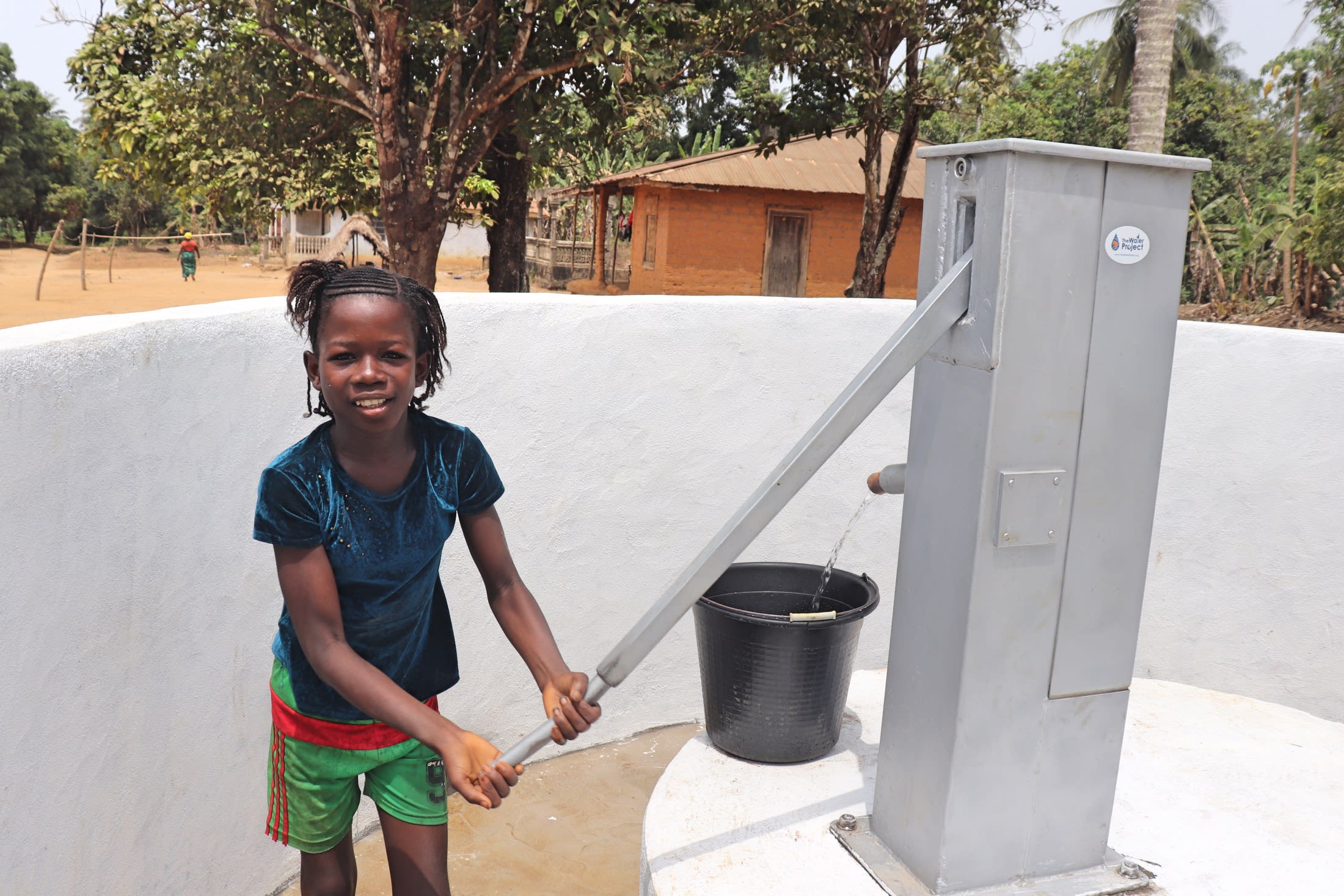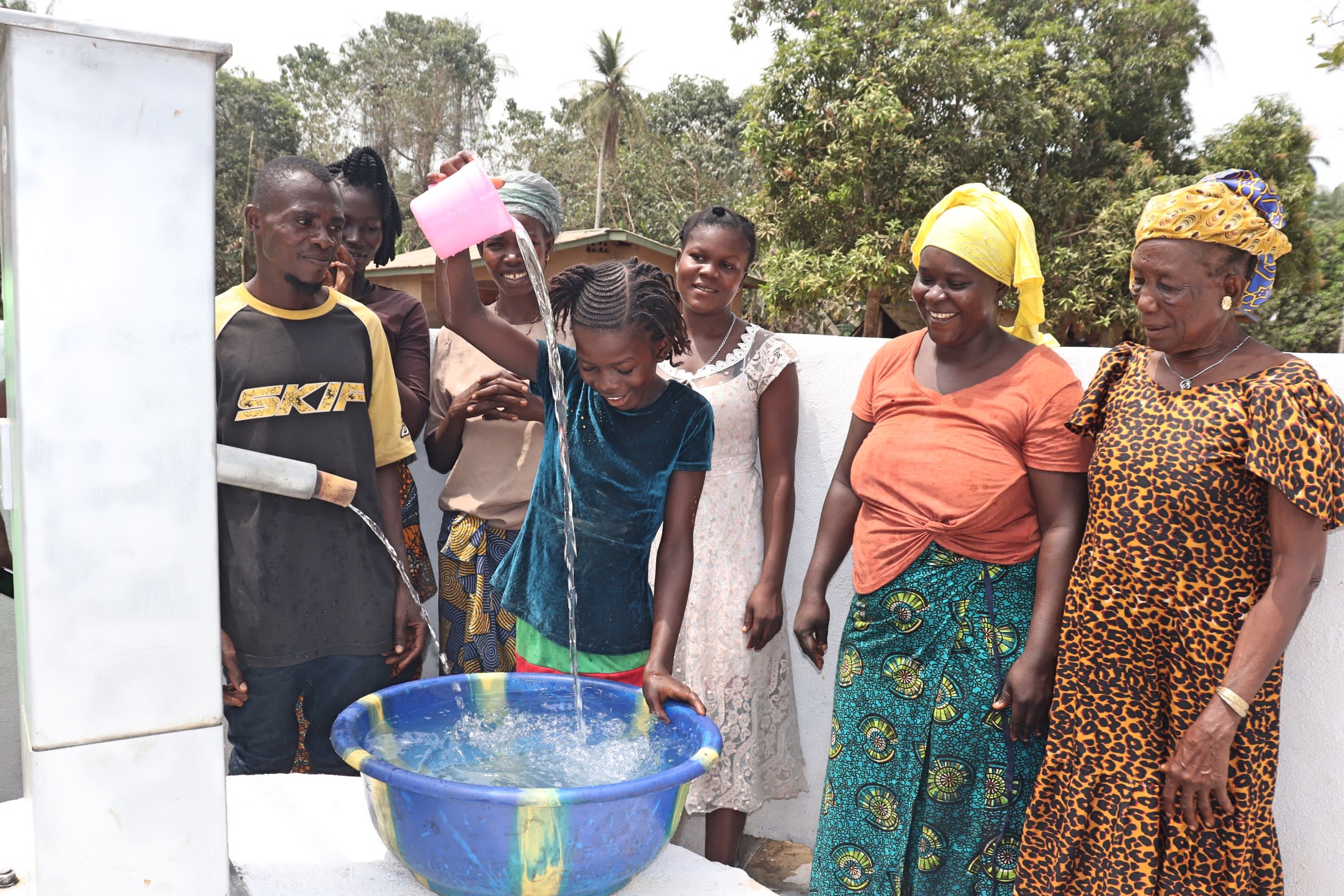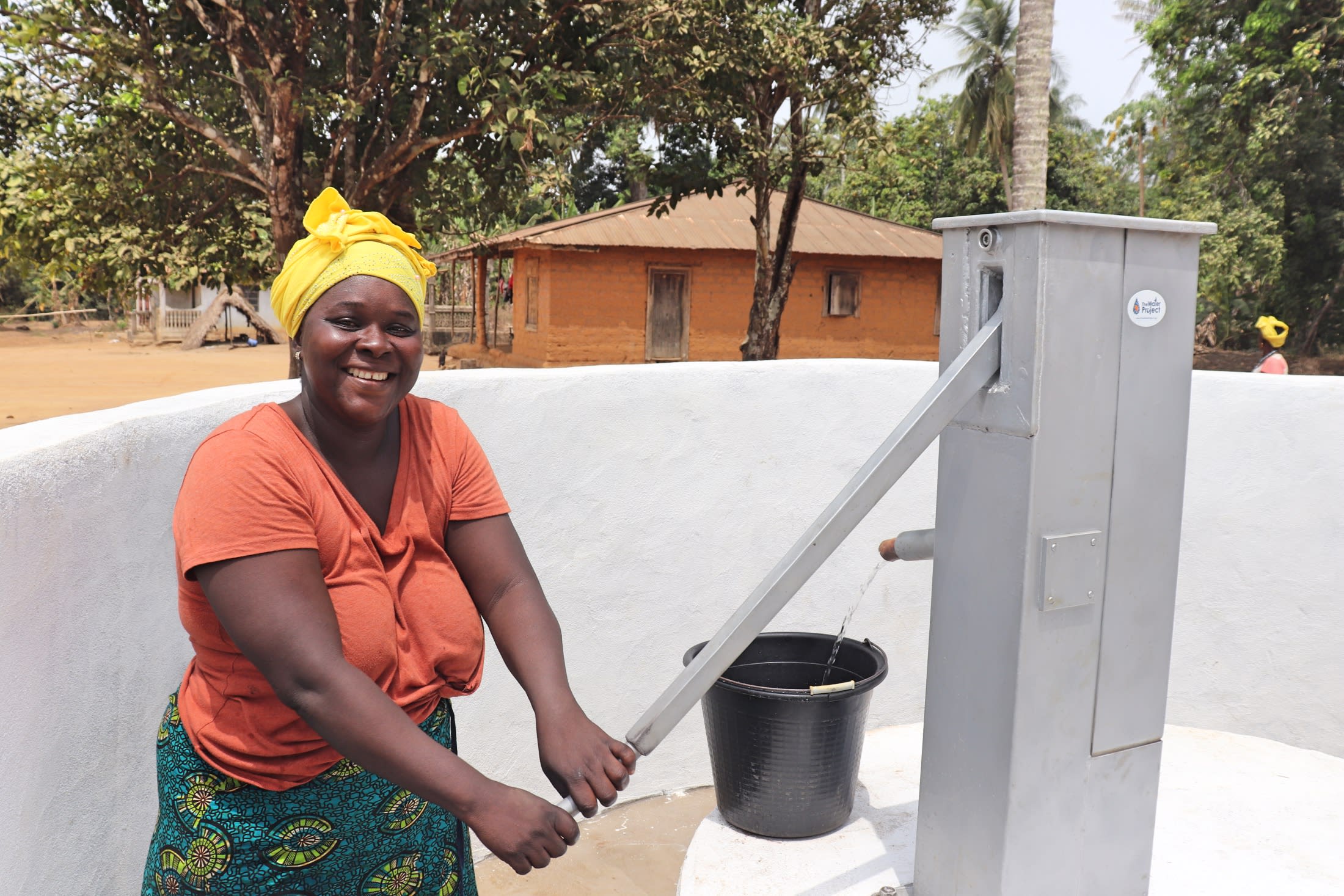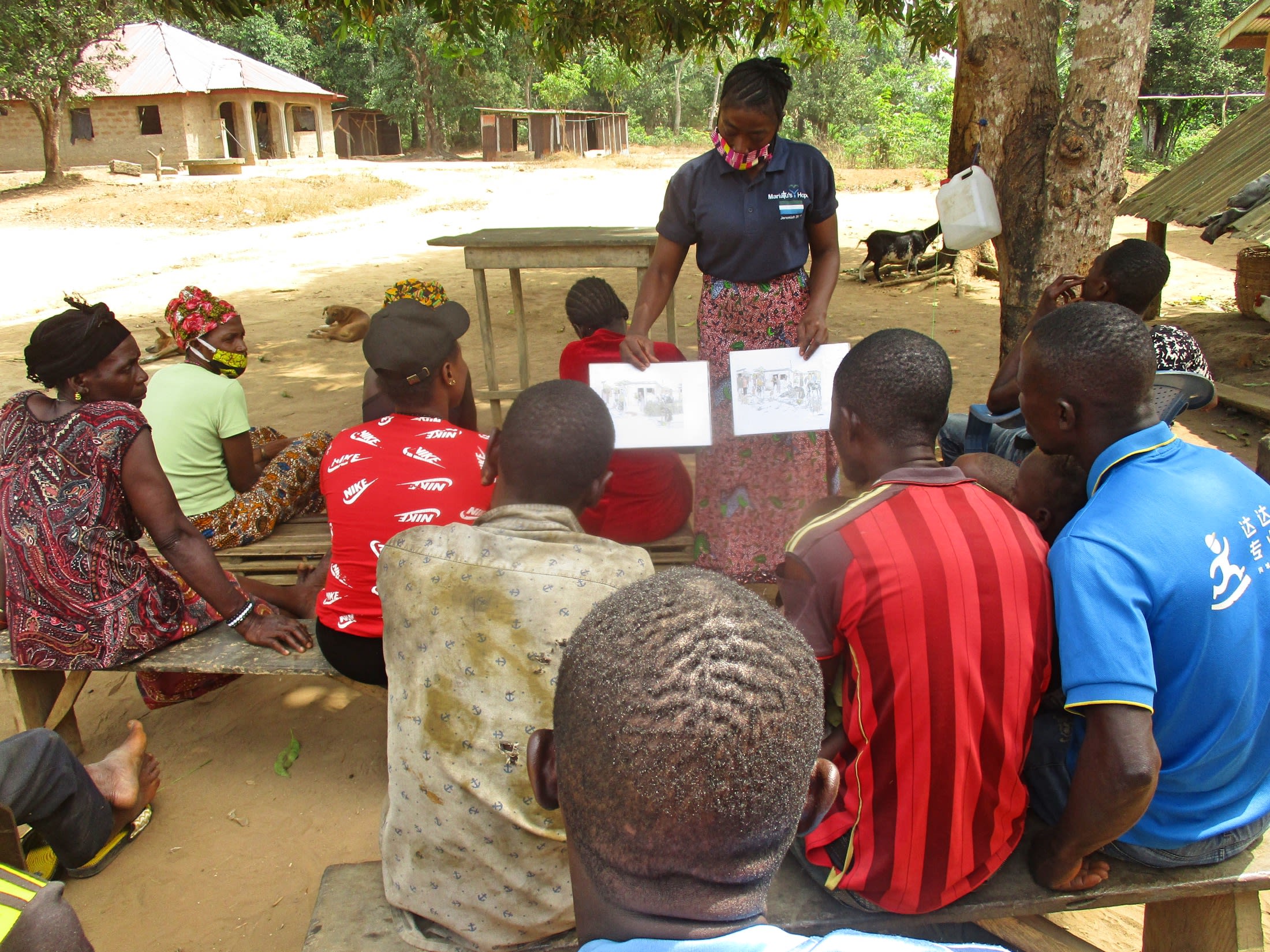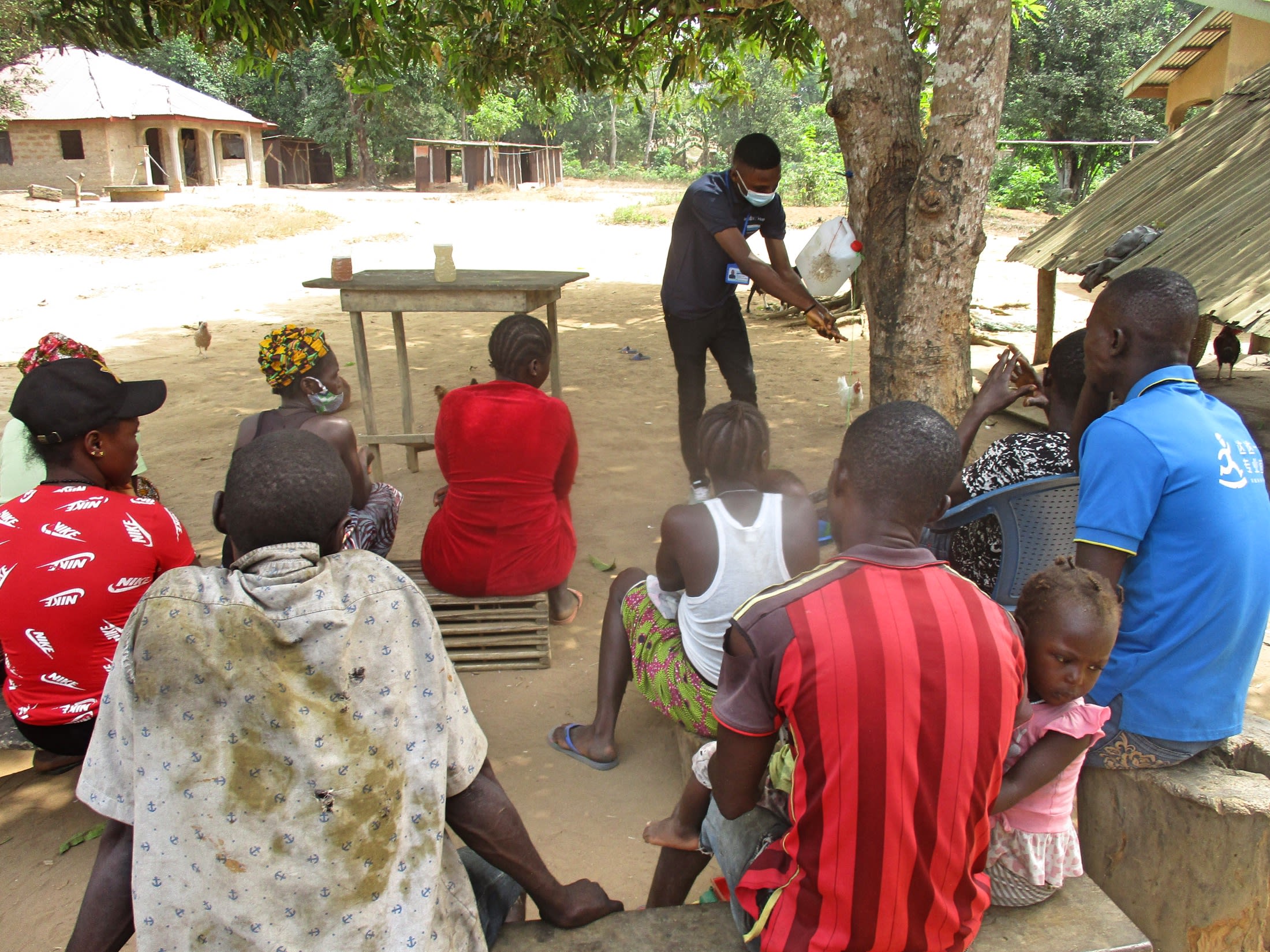The 200 community members of Kathoma consistently struggle to find sufficient water to meet their daily needs. Community members have access to a couple of water sources, but both present unique challenges. Finding enough water—in particular, clean water—can feel overwhelming.
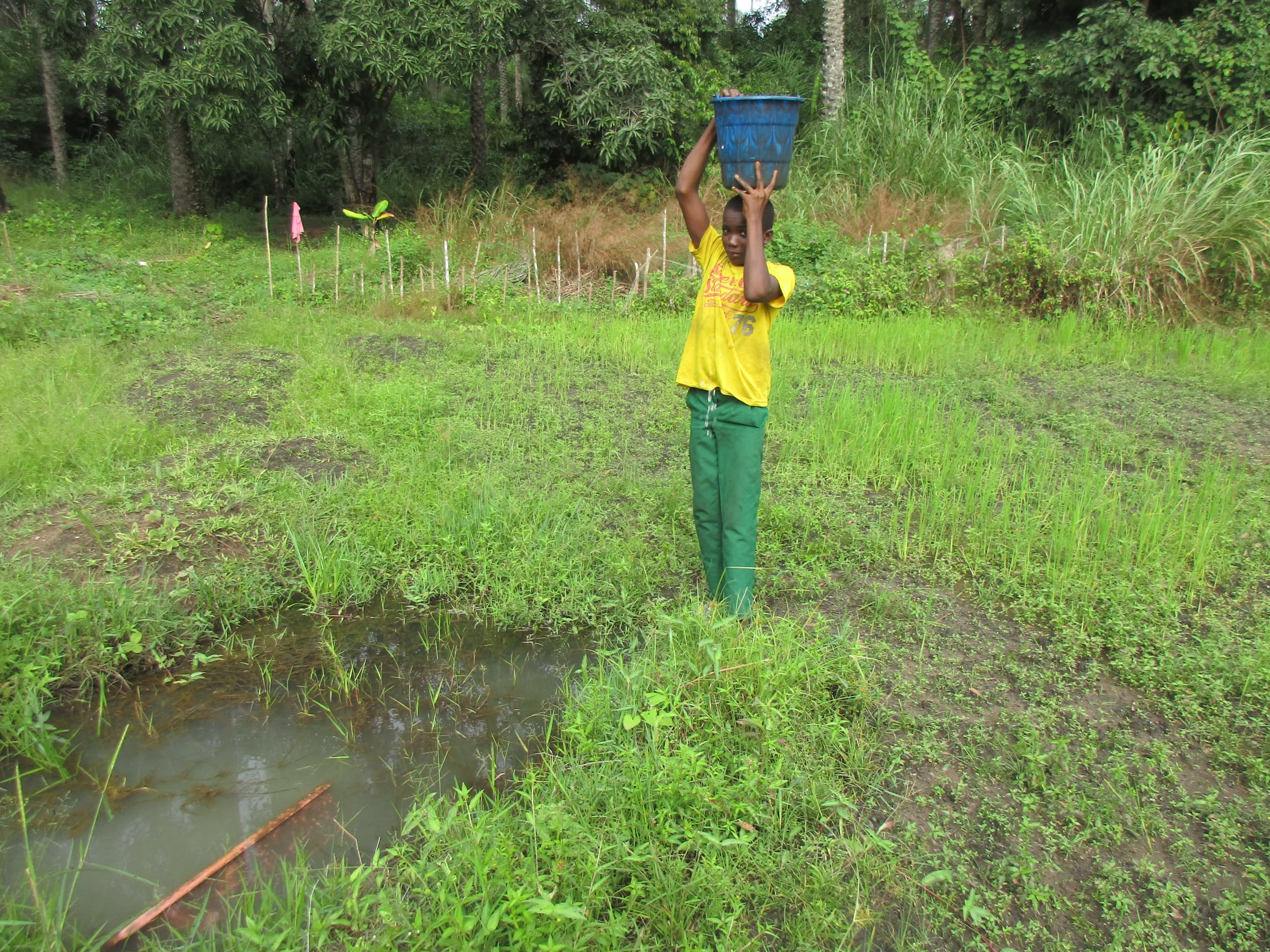
The most common water sources that community members turn to are muddy, shallow dug holes filled with pools of water in a local swampy area. People walk along a dirt path through high grass to reach the water, bend down, and scoop the water up with containers while trying not to fill their jugs with debris and dirt. At night and during the rainy season, the swamp area is restricted to prevent people from falling into one of the scoop holes and hurting themselves.
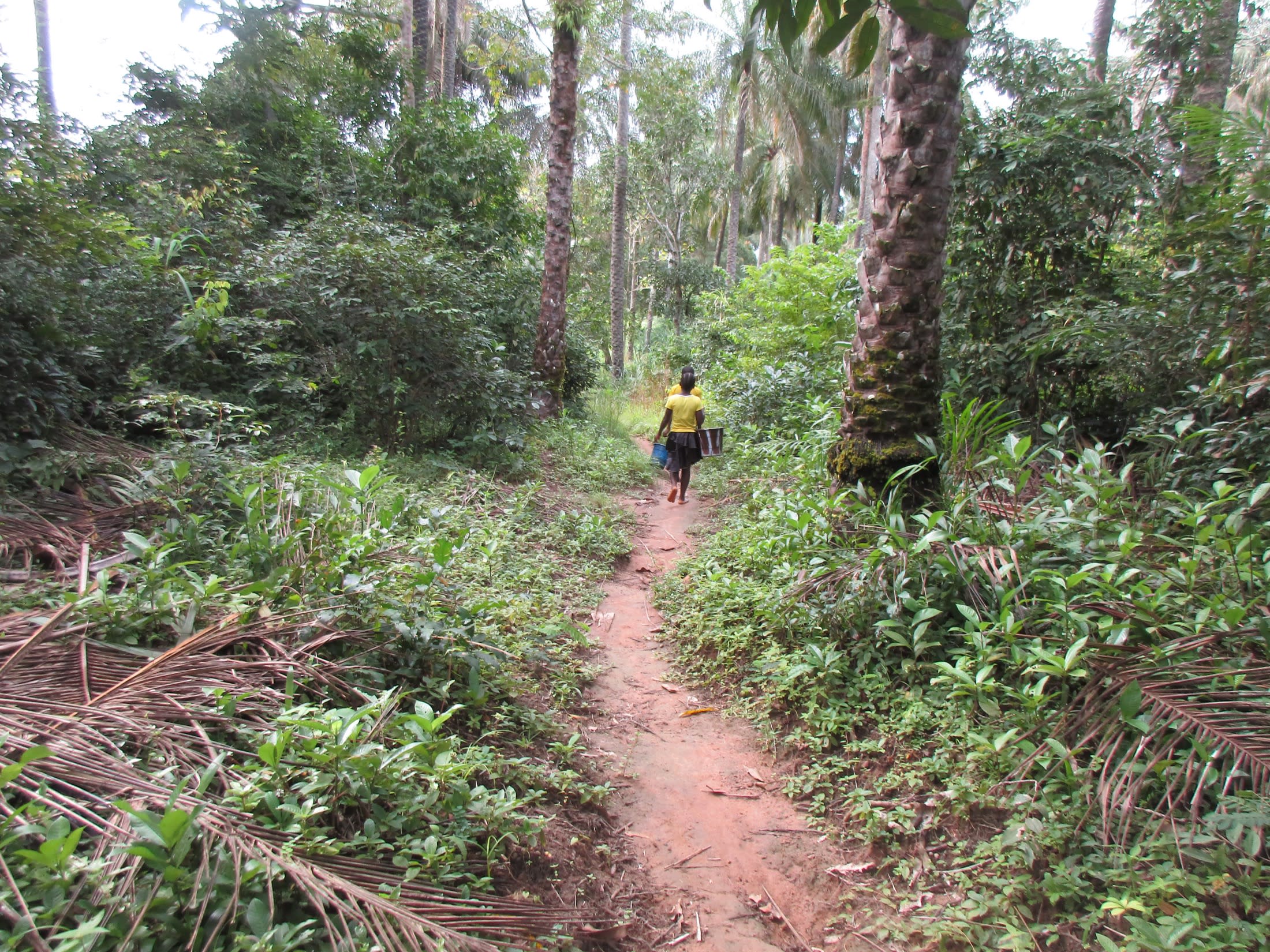
Understandably, the water from these holes is anything but clean and not safe for drinking. These are open sources contaminated by people, animals, and runoff from nearby farming activities. It is common for people to drink the water anyway and suffer from water-related illnesses such as typhoid, dysentery, cholera, and varied respiratory diseases.
There is also a protected dug well with a hand pump centrally located in the village, but it is too shallow. Due to global warming, seasonal drying has gotten worse over the past few years. It used to mean the well was dry for one month a year, but now this time period has extended to more than six months out of the year. 2019 was the last time the water was chlorinated, and it has an unpleasant taste. The flow is slow, leading to long lines that cause people to become impatient and seek alternatives.
There used to be another hand-dug well in the community, but it collapsed several years ago. For three years, community members spent money and paid workers to rehabilitate the well, but it was only ever brought back to partial working order. Water would only come for two months a year because it simply was not deep enough and eventually dried up altogether.
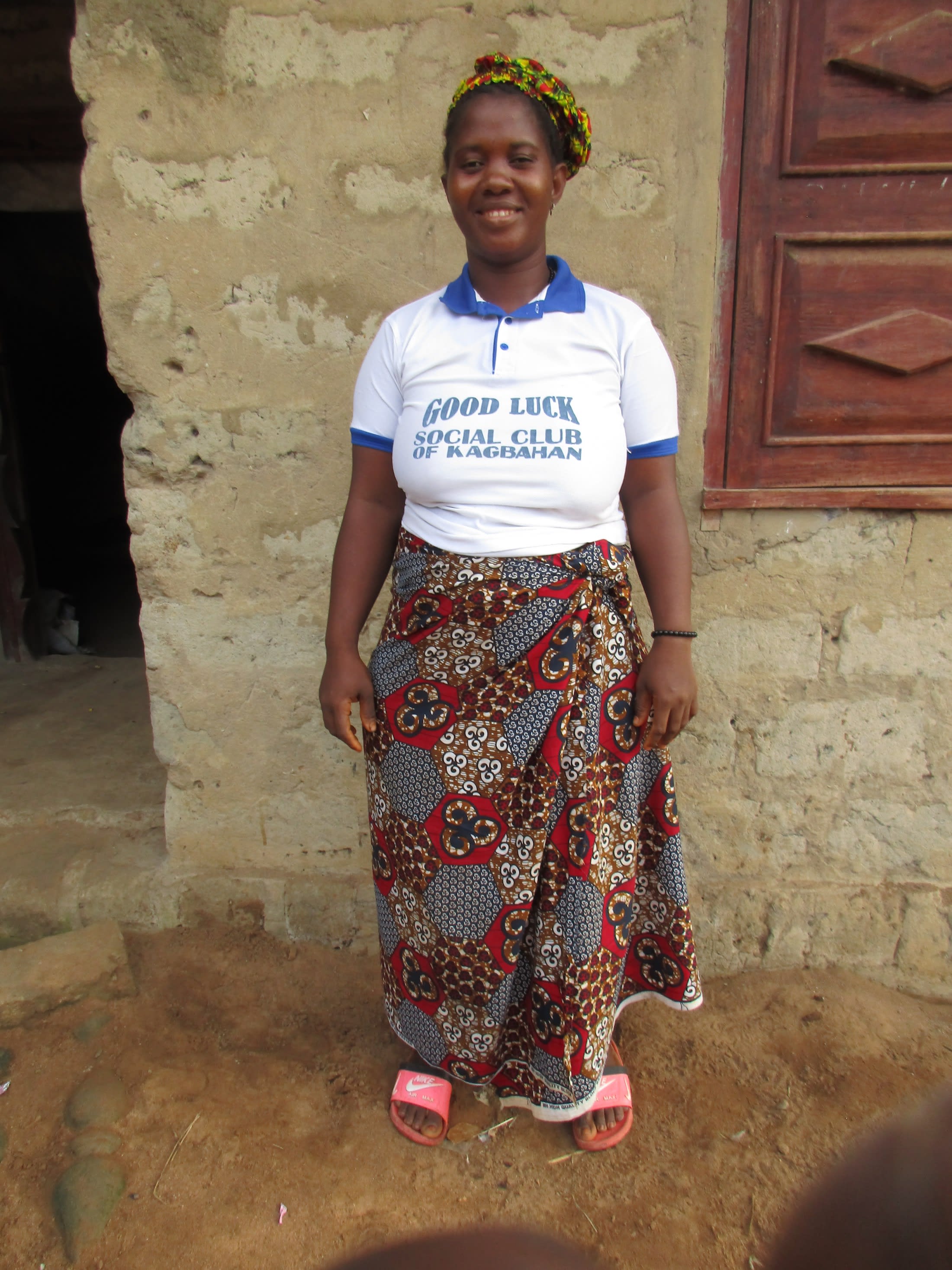
Aminata Bangura (in the photo above), 32, is a petty trader and runs a small food-making business, which means she needs plenty of clean water every day. She shared how this has made the success of her business challenging. "When the pump in the village went dry, I had to pay motorbike riders to fetch water for me from the nearby villages. That means I had to invest in more containers to store water, keep a rider on standby, and make sure the water is always available for drinking."
Without water, Aminata's sales decrease, and her livelihood is at risk. "The way to increase my sales is to make sure everything from spoons to plates and cups are properly clean. That can only happen if the water is also clean and safe. All of these extras reduce my profit, but it is worth it because I have developed a customer base of people that come from far to eat here."
She was honest when she said, "I don't know how [much] longer I can hold on, but I am always praying for a solution to our water problem in this community."
The scoop holes are dangerous on their, but for 13-year-old Fatmata S., seen in the photo below, there are other threats that go along with fetching water. She said, "I am always scared to go to the swamp by myself to fetch water. The main reason for being scared is the boys that follow us to the swamp. My friends and I always bathe when we go to the swamp because it will be a waste of time and effort to bathe in the village after walking a long distance to fetch water. They stand and watch us wash up."
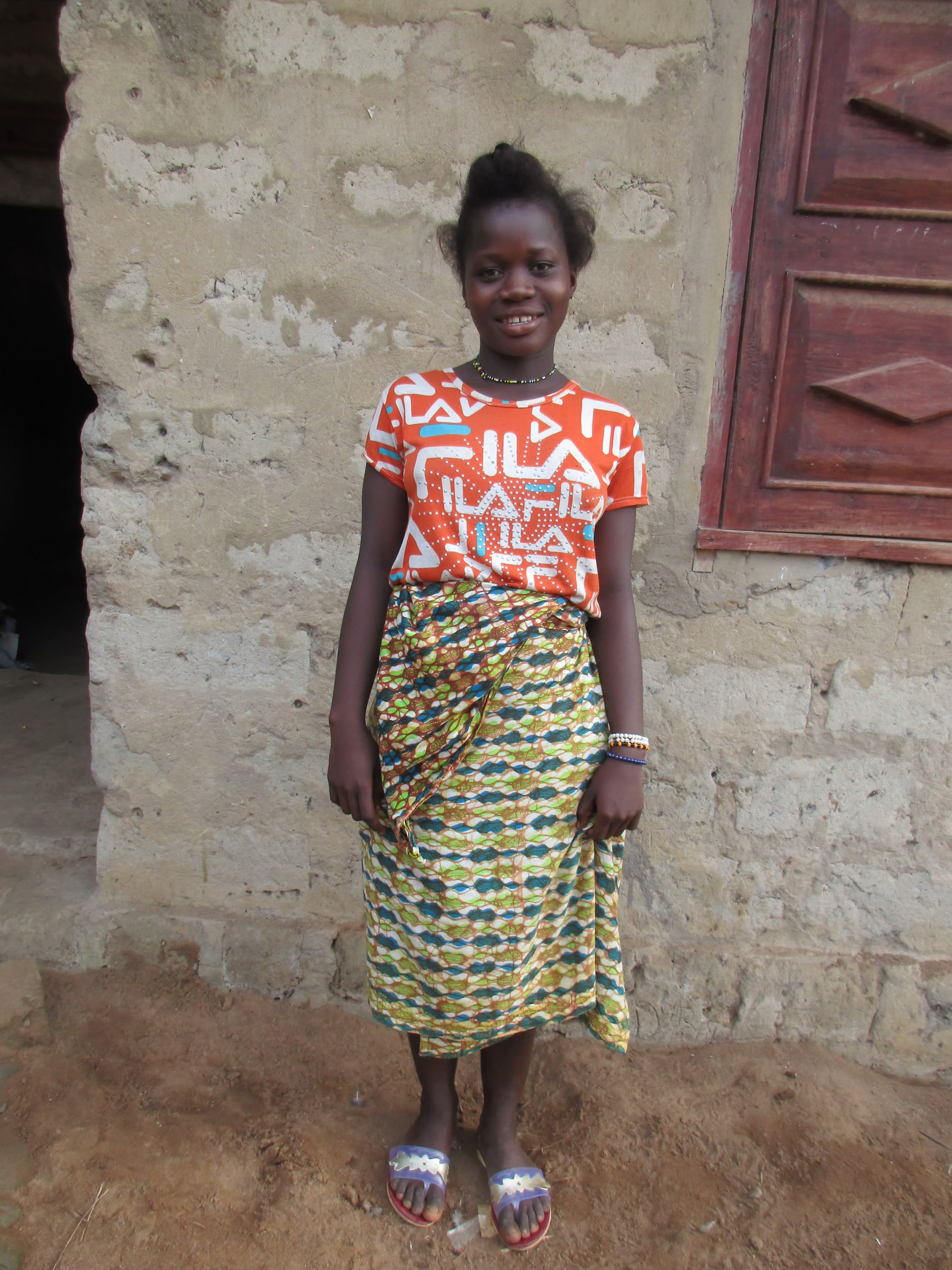
Fatmata feels safer waiting to bathe until she gets home, even though it means she may not have any water leftover to use for other things. She shared, "Most of the time, I wait until late at night after my parents have used all the water they need. That is when I wash, just to avoid the stares from the boys. That way, I can use the bathing shelter and take as long as I want."
Besides fearing for her safety while bathing, Aminata also feels the burden of collecting water for her entire family. She used to delay waking up and doing her chores in the morning. She was sure to be late for school and be punished when she did. She said, "I started waking up earlier and making sure all my chores are completed before going to school."
And she also decided to fetch some water in the morning and make a second trip later in the day after school to collect more water for the rest of her family's needs. "Since nobody will be home, there is not much water used, so I leave the other containers and fetch [them] when I return [from school]." For the time being, it is working, but it leaves her tired and without much time or energy to do anything else.
The rehabilitation of the protected hand-dug well in the community will allow people safe access to sufficient clean water near their homes to focus their time and energy on other tasks.
Here’s what we’re going to do about it:
Well Rehabilitation
The well marked for this overhaul is dry for a few months every year and needs major work to supply adequate, clean water to the community year round. The pump will be removed, and a hand auger will be lowered inside and powered by a drill team. This hand auger will allow the team to drill several meters deeper to hit a sufficient water column that will ensure the well supplies water throughout all seasons.
As the team drills, casing will be installed, transforming the bottom of this hand-dug well into a borehole. PVC piping will connect this lower system directly to the pump, a construction that we know will also improve the quality of water.
Once this plan is implemented, everyone within the community will have access to safe drinking water in both quality and quantity, even through the dry months.
Hygiene and Sanitation Training
There will be hygiene and sanitation training sessions offered for three days in a row.
After our visit, the hygiene and sanitation trainer decided it would be best to teach community members how to build a tippy tap (a hand-washing station built with a jerrycan, string, and sticks). They will use these tippy taps for handwashing demonstrations, and will also teach about other tools like dish racks and the importance of properly penning in animals.
These trainings will also strengthen the water user committee that manages and maintains this well. They enforce proper behavior and report to us whenever they need our help solving a serious problem, like a pump breakdown.

 Borehole Well and Hand Pump
Borehole Well and Hand Pump











